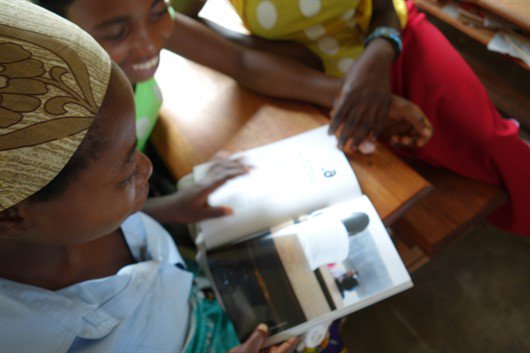Africa/ Republic of Congo/ 21.01.2019/ Source: reliefweb.int.
“My community now accepts me without question and sometimes girls in my community come to visit me. This makes me happy.”
Since we began research in Eastern DR Congo three years ago this month, life for this 16-year-old girl and hundreds like her formerly associated with armed groups has changed immeasurably.
In January 2016 we set out to understand what happens when girls return home from armed conflict and assess the support they receive once free from armed groups.
After weeks of interviews – we spoke with more than 150 returned girls, community members, local NGOs and others across Congo’s eastern provinces – it was abundantly clear that many girls were suffering immensely because of their experiences. The source of their greatest misery was often not memories from the bush as one might think, but how they were treated once home.
Rejected by family and friends, girls coming home were being ostracised by their communities because of their association with an armed group.
“Every girl from the bush, the community points to her and says: ‘Watch out: HIV.”
Alongside our local partners we wanted to reverse this shocking reality. To tangibly improve the reintegration support given to returning girls in the region we knew we had to ask them directly what specific assistance they required.
The overwhelming wish for many was to feel accepted again by their communities. One very efficient way of achieving this was by returning to education.
“If we could go to school, the community would be nicer to us, we would get some consideration.”
Over the proceeding months and after dialogue with schools, religious leaders and senior community members, we began to implement projects to improve reintegration support for girls.
The findings from our research led to the creation of a research report and a Practical Guide in 2017. Focusing on low-cost community initiatives to eradicate stigma and improve community acceptance, the guide has since been shared in 46 local communities, leading to more girls being welcomed and accepted.
Initiatives include religious leaders involving girls in church activities, engaging local women to run listening sessions so girls can share their thoughts without judgement and organising ‘Welcome Ceremonies’ to offer a welcoming gesture on behalf of the family and the community, emphasizing their responsibility to care for their child.
“I have friends at school and in my neighbourhood. I love to get involved in church activities like singing in the choir. I’m accepted by my community and I’m happier now.”
As of January 2019, our education projects have helped 245 girls formerly associated with armed groups and other vulnerable girls return to school or attend numeracy and literacy classes and five have started university. Some of them, having graduated the numeracy and literacy classes, proceeded to agricultural training and are now growing peanuts and maize together as a cooperative.
“I just finished primary school and soon I will begin secondary school. I’m so proud to be going to school.”
In February 2018 we also launched our National Action Groups. Comprised of local NGOs, community figures and government representatives, the groups are using the Practical Guide to raise awareness among communities about how they can better welcome and support returning girls.
Source of the notice: https://reliefweb.int/report/democratic-republic-congo/three-years-girls-returning-conflict-dr-congo-find-acceptance






 Users Today : 160
Users Today : 160 Total Users : 35459755
Total Users : 35459755 Views Today : 306
Views Today : 306 Total views : 3418278
Total views : 3418278